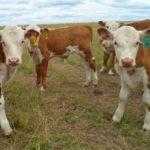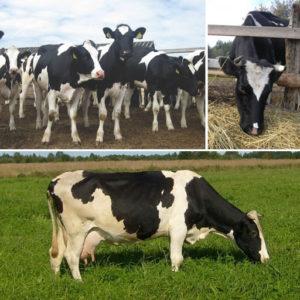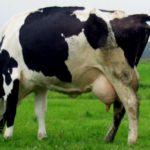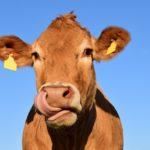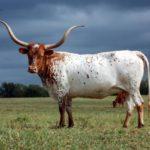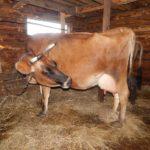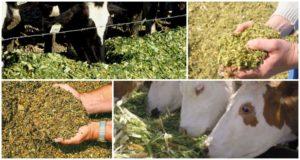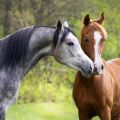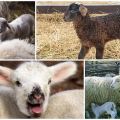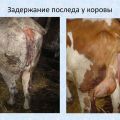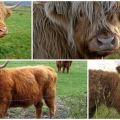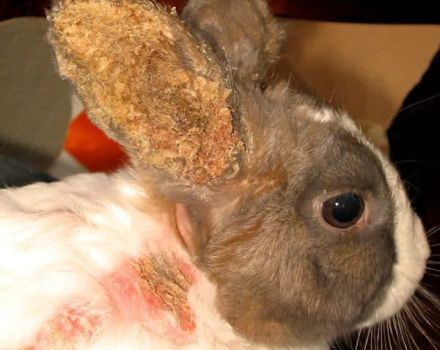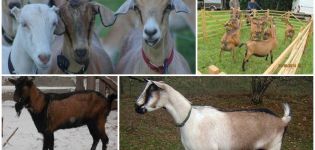List of easy and beautiful cow nicknames, popular and unusual names
Nicknames for animals such as cows have been given from time immemorial. In the old days, the nurse and the drinker were called differently. We only tried not to give them human names. This was done to protect cows from the evil eye, spoilage and diseases, which, according to superstitions, could pass from humans to cattle. You can come up with a nickname for your pet yourself. The main thing is that the owner of the cow likes this name.
Content
- 1 Names for girls
- 2 Nicknames for bulls
- 3 By color
- 4 Nicknames by month of birth
- 5 Geographic names
- 6 By distinctive features
- 7 Depending on the nature
- 8 According to the weather conditions that were at the time of birth
- 9 By the names of flowers and plants
- 10 Original nicknames
- 11 Accustoming a cow to a nickname
- 12 Is it possible to change the nickname
Names for girls
A young heifer can be called a name that begins with the same letter as her mother's nickname. In any case, this is done in many breeding farms. For example, if the cow's name was Zorka, then her girl could be called Zvezdochka (Mike - Masha, Kalinka - Doll, Golubka - Gryaznulya).
Nicknames for animals are invented depending on the breed. For example, the Yaroslavl cow is called Yaroslavka, the Simmental cow is called Sementalka, and the Jersey cow is called Jeri. The little calf can be given a nickname that is consonant with his surname (Ivanov - Ivashka, Nikiforov - Nikishka). The easiest way to name a favorite is by color, character, or by the name of the flower. For example, Ryabushka, Veselunya, Georginka.
Recently, it is in vogue to call cows by the names of heroes of foreign television series. Such words sound original, are not used in a specific area and are just suitable for animals. Thanks to foreign films, local cows received beautiful names - Rosa, Isabella, Matilda.
Nicknames for bulls
You can call a calf by a name that begins with the same letter as the nickname of its father (an adult bull). This is usually done by pedigree farmers. For example, if the name of the bull began with the letter "Z" (Zigzag), then the calf-boy can be called Sharp (Vaska - Willie, Krepysh - Krokha).
Young bulls are given a nickname depending on the appearance, character, month of birth, breed, weather and even habitat. The word is chosen so that it suits the animal and pleases its owner. If desired, the bulls are even named after the heroes of foreign films or children's cartoons. For example, there are bulls named Arnold, Rodrigo, Luis Alberto, Gavryusha.
By color
Most often, the animal receives a name corresponding to its color. For example, a piebald cow is given the name Piebald, a black - Nigella, a variegated suit - Pestrushka. In the old days, the simplest and lightest nicknames were given to animals by the color of their fur. The black cow was called Gypsy, the white one was Snowball, the red one was called Ryzhik.
Nicknames by month of birth
You can give the calf a name corresponding to its birth month. This word will always serve as a kind of hint reminding about the age of the animal. For example, a calf born in April can be called April, in May - Mike, in July - July, in October - Oktyabrinka, in December - Dekabrinka. Cows respond best to a word that has the letter "p" in it.
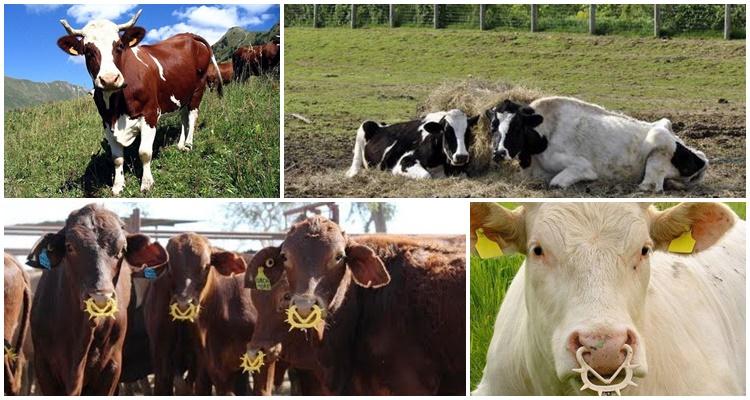
Geographic names
Nicknames, consonant with geographical names, sound beautiful. An animal can be given a name the same as that of a Russian river, mountain, village, city. For example, Baikal, Olenok, Indigirka, Kazbek. It is desirable that the name reflects the habitat of the animal. A cow from the village of Vyatskoye can be called Vyatka, from Aleksandrovka - Alex, from Sosnovka - Sosenka.
By distinctive features
Often, an animal is given a nickname, taking into account some of its characteristic features, that is, a white star on the forehead (Star), a black spot on the back (Pyatnushka), big ears (Cheburashka). If a cow has a white head, then, for example, it can be called White-headed, Squirrel or Belashka. A bull with twisted horns is often called a bagel.
Depending on the nature
Often the nickname of an animal is given by looking at its temperament. There are calm and affectionate cows (Laska, Quiet, Cute). Playful and cheerful bulls are given the nickname Brykun or Igrun, Veselun. The name Wild or Shaitan, Fierce, Tiger, Othello is suitable for wayward animals.
According to the weather conditions that were at the time of birth
Some people give the calf a name for the birthday of the weather. In any case, the animal receives an original nickname, possibly somehow influencing its fate or temperament. Popular names for calves: Wind, Snowball, Hurricane, Rain.
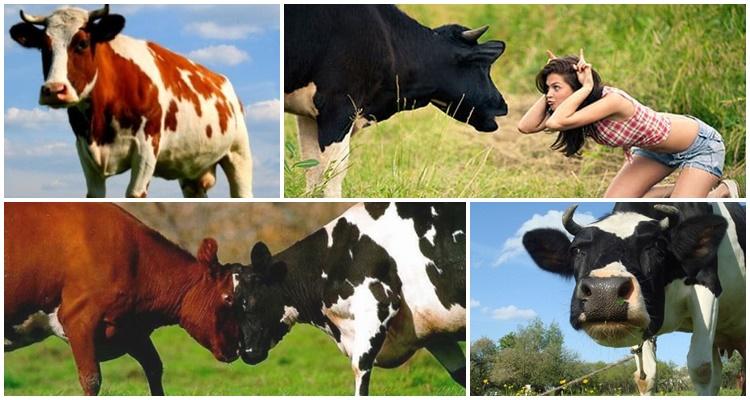
By the names of flowers and plants
The nicknames of animals by the name of flowers (Chamomile, Bell, Peony, Narcissus, Dahlia) sound beautiful. You can give the calf a name, like a tree, for example, Birch, Ryabinka, Ivushka, Dubok, Leshchinka. There are also unusual names of animals, also borrowed from plants: Lavender, Sage, Banana, Orange.
Original nicknames
The nicknames of animals, invented with humor, sound unusual and original. In the villages, they like to call cows Glass, Princess, Countess, Thumbelina, Parisian. Bulls are sometimes given names that are completely unusual for the countryside - Caesar, Jupiter, Spartacus, Jack, George. Children love to call calves by the names of computer or cartoon characters (Stalker, Shepard, Kratos, Applejack, Scrat).
Accustoming a cow to a nickname
The name of the animal is given from its very birth or at the time of buying a small calf. And only one thing. It is very important to teach the cub to the word that corresponds to its name. This is not an easy occupation, but rewarding. It will take a long time before the animal realizes that it is being addressed and remembers its name.
The nickname is pronounced aloud every time they approach the calf. The animal must hear its name and understand that this word refers specifically to it. It is advisable to pronounce the calf's name several times a day, and in different interpretations ("I give Dawn grass", "Dawn, let's go for a walk," Dawn, stop, "Dawn, give me a scratch behind the ear"). When addressing an animal, you need to give your voice a gentle note. Cows always respond to affection, kind words tie them to the owner. The more often you talk to an animal, saying its name aloud, the faster it will be remembered.
If the cow is grazing in the meadow, you can call her and give a sugar cube or a quarter of an apple. The animal will understand that by calling out to the word addressed to it, it will receive some kind of tasty reward.
A treat is a good motivation for the cow to remember her name. Moreover, this technique works better than affectionate phrases. The main thing is to constantly say the same word. If you call a cow a different nickname each time, she will not understand that they are referring to her. Different words can confuse the animal. It is advisable not to talk a lot with the cow, to focus the conversation on only one word - her name. Usually a small calf gets used to its name in just a few weeks.
True, due to its stubborn or playful nature, the animal does not always want to respond to its own name. In addition, the cows also know how to be offended. If you shout at a cow, calling her by name, then this will be deposited in her memory and cause an unwanted association. The burenka will begin to avoid the owner calling her with the word that reminds her of unpleasant events.

Is it possible to change the nickname
You can change the name of a cow at any age, but this is not recommended. If for some reason you don't like the name of the animal, then you can teach it to a new one. True, you will have to try hard and devote a lot of time to talking with the cow. The main thing is to always call her the chosen nickname when communicating with a cow. And the same one.
A favorite cow delicacy (a lump of sugar, a quarter of an apple, a pear) will help you learn a new word better. You need to treat the cow only if she turns her head and responds to her nickname. Adult animals are slower to get used to the new name.
The main thing is not to give up and constantly accustom the cow to the word that will become her nickname. In the process of accustoming to a new name, you need to ensure that it always evokes only positive associations in the animal. If you shout at a cow and at the same time pronounce her nickname, then, most likely, she will be reluctant to call out her name.
When buying an adult cow, it is better to put up with her name. Especially when the animal readily responds to it. The fact is that an animal's nickname is associated with some important episodes and stages of its life. The cow has become accustomed to the words after which she is fed or milked. An adult animal may simply not perceive other phrases.


